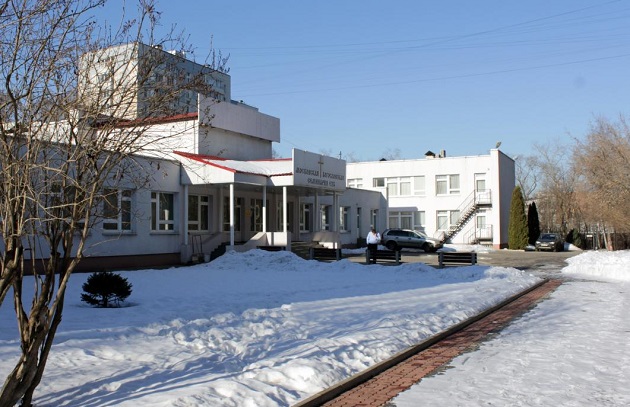The flagship theological schools of the Pentecostal Union and the Baptist Union in Moscow have been banned from admitting students.
 A view of the Moscow Baptist Theological Seminary, in Moscow. / Photo: SDgszdfgdf, Wikimapia
A view of the Moscow Baptist Theological Seminary, in Moscow. / Photo: SDgszdfgdf, Wikimapia
The main theological training centres of the Pentecostal Union and the Baptist Union in Russia have been forced to stop their activities.
According to a Forum 18 report, Russian evangelical Christians see the increase of control oveer these kind of institutions as “a means by which the authorities are attempting to curtail their activities and place them under even greater official scrutiny”.
PENTECOSTAL SEMINARY
The Russian Pentecostal Union’s Eurasian Theological Seminary was obliged to stop offering certificated courses when its licence was annulled in November 2018 after a series of court cases brought against it by the Federal Service for Supervision in Education and Science Rosobrnadzor over the administration of its undergraduate theology degree.
The seminary had to stop offering all its degree and diploma courses. It is currently in the process of applying for a new licence, Pentecostal Union lawyer Vladimir Ozolin told Forum 18. This is the only way it will be able to resume operating fully.
“Inspections of Evangelical universities in 2018-2019 have shown the inconsistency of legislation on education and freedom of conscience, which has created a lot of problems for our educational institutions”, Eurasian Theological Seminary Rector Aleksei Gorbachev commented.
“I believe these actions have a systemic, intentional character, under the pretext of supervision of educational activities”, Pentecostal Union lawyer Vladimir Ozolin aslo added. “In this way, pressure is being exerted on the non-traditional confessions; this is perhaps another act of intimidation”.
BAPTIST SEMINARY
The Baptist Union’s Moscow Theological Seminary came to the end of a 60-day suspension of all its activities, which began on 25 January 2019. A Moscow court imposed the suspension after Rosobrnadzor also found fault with the organisation of its theology bachelor’s degree and the qualifications of its staff.
In February, the Seminary was also banned from admitting new students.
None of the institution’s 138 students on licensed courses, or the approximately 1,500 other students, including on distance-learning courses, is able to attend classes.
“Unfortunately, none of the documents of the commission presented specific claims about the deficiencies identified in the work of the seminary”, the Baptist Union’s seminary complained. “They are all given in the form of reiterations of articles of the Education Law, or rather as alleged lack of compliance with the requirements of some articles of this law”.
“The news of the suspension of the Seminary’s activities was a surprise”, Rector Pyotr Mitskevich told Forum 18. “The Seminary students are spiritual people, and during the entire period of punishment, they have prayed and supported the staff”.
The Seminary is challenging Rosobrnadzor’s actions through the Moscow City Arbitration Court.
RELIGION LAW ALLOWS NON-CERTIFIED EDUCATION
The Religion Law distinguishes between “educational” activity - for which a religious organisation might require a state licence - and “teaching”, for which it does not require a licence.
The law says religious associations may offer non-certificated religious instruction to their own members and under their own internal rules. Such teaching is not considered to be educational activity and therefore does not require a licence.
Therefore, religious educational institutions which have chosen not to offer state-accredited courses need conform only to its own internal requirements for how it organises its courses. This is the case of both the Eurasian Theological Seminary and the Moscow Theological Seminary.
But according to the layer of the Pentecostal Union, the federal education supervision body was treating the Pentecostal Seminary’s non-state-accredited theology bachelor's degree as if it corresponded to the degree of theology on the Education Ministry's formal “List of Areas of Higher Education Preparation – Undergraduate”.
This was “incorrect”, because the Eurasian Theological Seminary’s “educational programme complies with the requirements of the Pentecostal Union”, and “therefore, in its development and approval there is no violation of the legislation of the Russian Federation. In addition, the programme contains all sections required by the Education Law”.
PRESSURE ON OTHER MINORITY FAITH GROUPS
Russia has been stepping up the pressure on minority faith groups in 2019.
In February, a Danish citizen was jailed for leading Jehovah’s Witnesses activities, a religious group illegalised in 2017.
In March, two American volunteers of the Latter Day Saints (Mormons) were deported after three weeks in detention.

Las opiniones vertidas por nuestros colaboradores se realizan a nivel personal, pudiendo coincidir o no con la postura de la dirección de Protestante Digital.
Si quieres comentar o